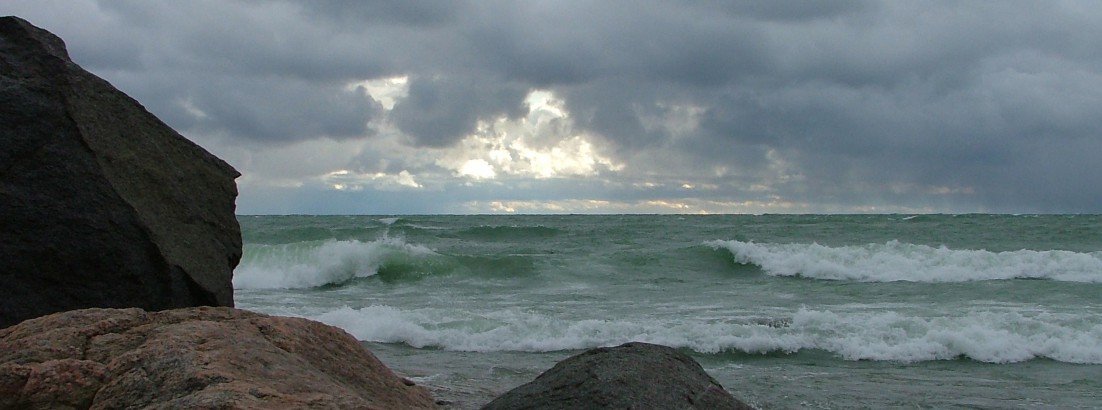On April 4, 2011, Israeli actor and theatre director Juliano Mer-Khamis was murdered in Jenin, a city in the occupied West Bank. He was 53.
According to Israeli news reports, Jenin police chief Mohammed Tayyim said that Mer-Khamis was shot five times by “Palestinian militants.” Tayyim added that Palestinian Authority police have made no arrests, but will continue to investigate.
Since 2006, when Juliano Mer-Khamis opened a theatre for young people in the Jenin refugee camp, he has risked a great deal — everything, as it turns out — for his fervent belief in the life-transforming power of art.
The opening chapter in Our Way to Fight explores the vibrant, dangerous work of the Freedom Theatre and its new acting school.
It emerged from the passion for freedom of Juliano’s mother, Arna Mer. Born in 1929 to Jewish parents in Palestine, she served in an elite brigade fighting for a Jewish homeland in the 1948 war, then fought for Palestinian freedom until she died of cancer in 1995. Following the 1967 war, Arna Mer-Khamis (by then she had married Saliba Khamis, the Palestinian secretary of the Israeli Communist Party) was imprisoned several times for protesting the Israeli occupation of the West Bank and Gaza.
During the first intifada Arna started a project to advocate for Palestinian children held in Israeli prisons, and to provide education after the military occupiers shut down Palestinian schools. When she won the 1993 Right Living Award (a Swedish people’s alternative to the Nobel Peace Prize), she used the proceeds to establish the Stone Theatre in Jenin, working with her son Juliano.
In the 2002 invasion, Israeli army bulldozers demolished the theatre; several former acting students of Arna’s died in the resistance, and others were imprisoned. Arna’s life and theirs are featured in the moving documentary Arna’s Children, co-directed by Juliano Mer-Khamis.
In 2005 Juliano left a prominent acting and directing career in Israel, returned to Jenin, and worked with a team of Palestinian, Israeli and Swedish volunteers to build the Freedom Theatre.
It provides young people of both sexes – a conscious, even provocative choice in a male-dominated society – with a safe space to express themselves, and to develop skills, self-knowledge and confidence through art-work. Its ambitious program includes theatre, dance, circus, theatre training, drama therapy, film and video, photography, English classes, an online magazine, a summer camp, festivals and field trips.
All this has endured and grown under the suffocating pall of military occupation. Though Jenin is nominally under control of the Palestinian Authority, Israeli army incursions continue. People in Jenin told me they’re relieved when the armoured jeeps show up only once a week instead of every second night. Sometimes the soldiers shoot, and nearly always they arrest someone, usually someone young, the Freedom Theatre’s primary constituency.
I walked through the refugee camp with Mustafa Staiti, a talented young film-maker who teaches at the Freedom Theatre. Our walk concluded at a small graveyard, where we stood in the welcome shade of an olive tree. The graves follow the slope of the land, descending in a series of shallow terraces.
“From that step down,” Mustafa explained, “those people were all killed during the Israeli invasion, sixty-four of them. Twenty are fighters, the rest civilians. At first all of them were buried in one hole, there was no time to do anything else. But then later they had to be re-buried so their families could communicate with them. Some of them are in pieces, some of them burned.” He let out a soft sigh. I heard it only because I was standing by his side. “Up there,” he concluded, pointing at another terrace, “it’s people killed since the invasion.”
Not everyone in the Jenin refugee camp is a fan of the Freedom Theatre. The theatre’s high-energy adaptation of George Orwell’s famous novel, Animal Farm, played to full houses every night. But it also touched some very sensitive nerves. Though originally about the corruption of revolutionaries in Stalinist Russia, when transferred to the context of Palestine it raised provocative questions about the current Palestinian leadership, and collaboration with the Israeli occupiers.
One night in April 2009, someone set fire to the main door of the Freedom Theatre. The door was destroyed, but apparently it prevented the fire from spreading into the building. Three weeks earlier, a previous arson attempt on the theatre had failed; that same night in Jenin, the Al Kamandjati Music Centre was destroyed by fire.
In time it may become clear who murdered Juliano Mer-Khamis, and why. Or it may not. After both arson attacks the Palestinian Authority police were informed, but to date no suspects have been identified.
Still, the Freedom Theatre lives. When it outgrew its rented premises, land was purchased and construction of a new theatre is now underway. Eventually it will include the largest stage in the West Bank, seating for up to 400 people, four workshop spaces, and offices.
In 2009, more than 16,000 young people took part in activities at the Theatre.
Last year, Juliano Mer-Khamis wrote: “We feel the burden of responsibility toward our future. The political future of the Occupied West Bank is not clear and bears dangerous currents of social and political unrest. Therefore our main task is to work closely with our community and to deepen our roots in the area. The Freedom Theatre gives space to all strands of political thought, encouraging pluralism, respect for the other and free expression. We believe that these values, which form the foundations to our work, will not be easily shaken by future political earthquakes.”
In this short video, Juliano makes an eloquent plea for support, essential to completing the new Freedom Theatre.
Live theatre. There could be no better tribute to Juliano Mer-Khamis.
